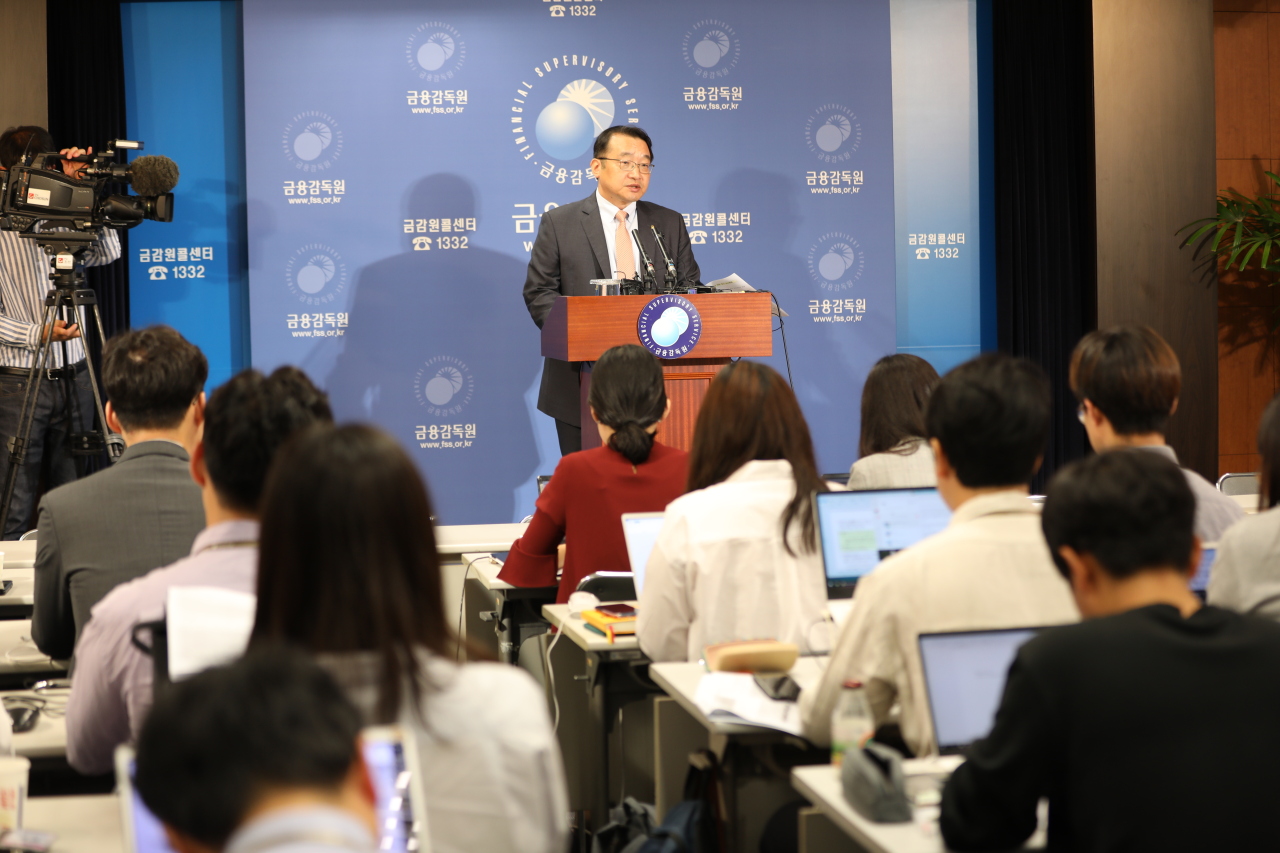Finance
FSS blames banks for W357.5b derivatives-linked securities fiasco
South Korea’s financial watchdog said Oct. 1 that commercial banks are responsible for the recent fiasco surrounding derivatives-linked securities products that put investors at risk of losing a combined 351.5 billion won ($298.6 million).
While all financial institutions in the case had allegedly sidelined their obligation to assess risks, execute internal controls and notify financial consumers of risks, commercial banks are mainly to blame, according to the Financial Supervisory Service.
Woori Bank and KEB Hana Bank overlooked the risks of structured products, which track the performance of German bond yield or constant maturity swap rates of US dollar and UK pound. Instead, they kept mum after securing income from commission fees.
 |
FSS Senior Deputy Gov. Won Seung-yeon speaks during a press conference held at FSS headquarters in Seoul on Oct. 1. |
Related:
Korean investors risk losing W127b on crashing German bond yields
“The commercial banks lacked internal control, because of their internal campaign designed to boost noninterest income,” FSS Senior Deputy Gov. Won Seung-yeon said in a press conference. “They neglected their obligation to protect consumers.”
He cited evidence that few of over 1,100 structured products were overseen by the banks’ internal committee, while their sales branches allegedly misinformed investors that the products have zero risk of losing principal.
Moreover, they played a central role in structuring and selling the risky products by suggesting the arbitrary standards to other parties involved -- brokerage houses and asset management firms -- which structured products teaming up with foreign investment banks and created funds to pool investors.
“This case shows that numerous retail investors are exposed to highly-leveraged products carrying the risk of a complete loss, without proper protective measures,” Won said.
According to the FSS’ findings, some 18 billion won pooled in the derivatives-linked securities evaporated as of Sept. 25 when the products matured. Also, investors lost 48.9 billion won by calling for redemptions before the maturity.
This includes the recent 98.1 percent loss of a fund that trails the German 10-year government bond yield, through which 8.3 billion won shrank to 160 million won in four months. Investors and civic rights groups have moved to bring the case to court.
In addition, investors in other derivative-linked schemes are likely to lose further, which is estimated at 351.3 billion won, or 52.3 percent of the initial investment, as of Sept. 25.
This came months after the FSS in August launched a probe on commercial banks Woori and KEB Hana to spot glitches in their sales procedure. FSS has also been investigating how the instruments were structured by looking into three securities houses IBK, NH and Hana and asset management firms Ryukyung PSG, KB, Kyobo-AXA, Meritz and HDC.
By the type of investors as of early August, retail investors accounted for 92.6 percent, whose 648 billion won investment pooled in such schemes took up 81.5 percent.
Of the total retail investors, those above 60 years old and above accounted for nearly half.
“A majority of the investors required protective measures,” Won said. “In an uneven playing field, anyone can suffer losses.”
According to FSS, however, compensations for the investors’ losses and the degree of penalties have yet to be determined.
Meanwhile, FSS said it has yet to consider conducting a probe into two foreign investment banks’ Seoul branches that are involved in the case and declined to name them.
By Son Ji-hyoung (consnow@heraldcorp.com)








